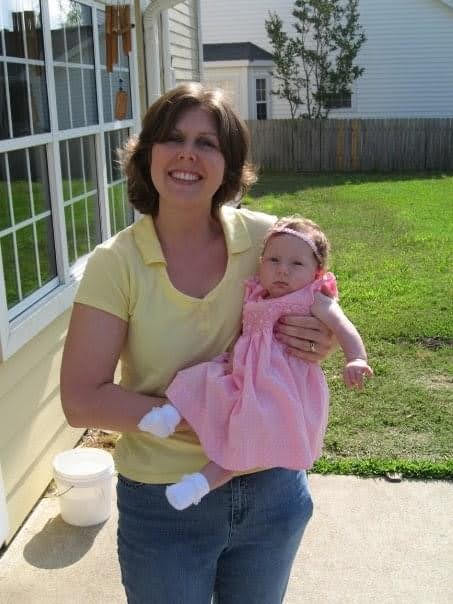 I’ve spent the last several months working on the 10th annual Moms’ Run + Family Fun Day. It’s the largest fundraiser for a local nonprofit, Postpartum Support Charleston, of which I serve as board president.
I’ve spent the last several months working on the 10th annual Moms’ Run + Family Fun Day. It’s the largest fundraiser for a local nonprofit, Postpartum Support Charleston, of which I serve as board president.
It’s been a ton of work but rewarding and if it helps just one woman through her struggle with postpartum depression, then it’s well worth it. It’s not always easy to share my own story of PPD but then I think of all the women suffering silently and I have to speak up.
So, I’m sharing here a guest column I wrote for The Post and Courier.
“On my very first Mother’s Day, I felt like a fraud. My daughter wasn’t yet 4 months old and I already was completely certain I’d failed as a mother. I was consumed by sadness, depression and a certainty I had made a very grave mistake. And because of all that, I was ashamed and overcome with guilt. Surely, I was the only mother to have ever felt this way. People would be horrified if they knew.
In truth, I wasn’t a fraud and I wasn’t a failure. I was simply a new mom going through postpartum depression. That diagnosis wouldn’t come until my daughter was 9 months old when, finally, in a place of utter despair, I asked for help.
By no means is my story unique. Some 20 percent of women experience postpartum depression in the first year after their baby’s birth. Postpartum depression is often confused with the baby blues – those feelings of weepiness and sadness that 80 percent of women go through in those couple weeks after giving birth. Here’s the difference: the baby blues go away after a couple weeks. Postpartum depression doesn’t. It lingers on and worsens until treated.
The good news is that it’s treatable and suffering mothers will feel better. Fast forward a few years and my daughter is 5 years old and full of spunk and energy. I’m so thankful to have healed from postpartum depression so I can appreciate my time with her.
Unfortunately, our society holds new mothers to an impossible standard. They are quickly sent home from the hospital and expected to care for a newborn while recovering from the trauma of childbirth – whether naturally or via C-section. Thankfully, I have a wonderful husband and family came to visit and help with our new baby. But not all women have that and even with help, we are expected to be immediately transformed into Super Mom, able to change diapers with one hand, soothe a fussy baby in a matter of seconds and keep the house spotless and the laundry done all on two hours of sleep. And let’s not even get started on the pressures to get back that pre-baby body before the little munchkin is even sleeping through the night.
With those kinds of expectations, who’s going to step up and admit she’s not feeling so motherly? I certainly wasn’t. I put on a happy face and gave the obligatory “it’s wonderful” when people asked about my life with a new baby. They saw a well-adjusted happy new mom not the woman who cried every night after her husband fell asleep.
On this Mother’s Day, can we give moms a break? Can we encourage them to ask for help and to let them know it’s OK if they aren’t in love with motherhood or even their own baby? If there’s a new mom in your life who just doesn’t seem like herself, talk to her and give her a safe place to open up. If she is really struggling with depression, encourage her to seek medical help or make the appointment yourself.
One of our great local resources is Postpartum Support Charleston, an organization dedicated to education, support and healing. We provide support groups for women going through postpartum depression, education for the public and medical professionals as well as grants for women who need financial assistance getting treatment for postpartum depression.
The biggest annual fundraiser for Postpartum Support Charleston is coming up Mother’s Day weekend. Join us May 11 for the 10th annual Moms’ Run + Family Fun Day. What better way to celebrate Mother’s Day than by joining with others in our community to bring a message of hope and healing to mothers going through PPD. Learn more or register at www.ppdsupport.org.”
View this article online.



